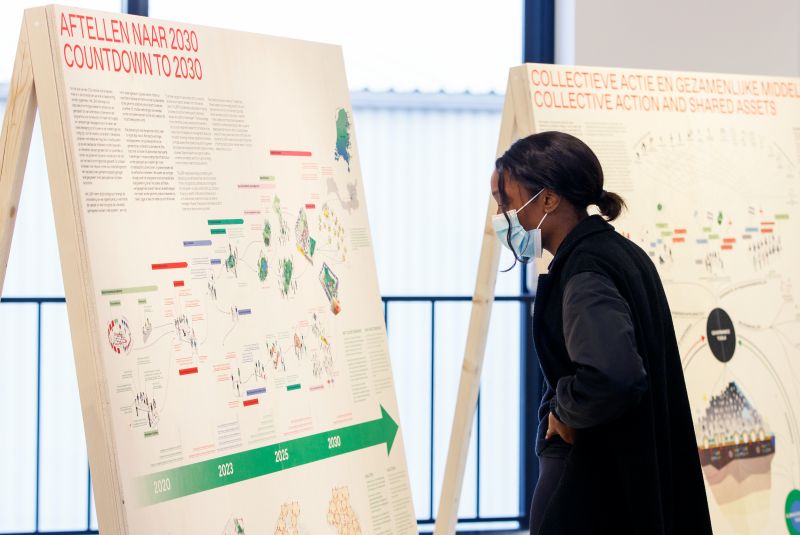From petroculture to postfossil culture
The energy transition affects every aspect of our lives: housing, working, mobility, nutrition, comfort, and culture. We are moving from a petroculture to a postfossil culture and this requires a new paradigm, new philosophies, and new ways of doing things. It’s clear that the transition cannot be made on the basis of the thinking and the doing that got us into trouble in the first place. It requires a new narrative of who we are and what we want, what we can want. More and more writers, thinkers, designers, and scientists are working on that new narrative. They are outlining a new paradigm, a different relationship with nature and the world, an economy based on other, more sustainable values that takes nature and society into account and an energy system that exists for the benefit ofthe community, that belongs to the community rather than prevails at its expense. In short, a paradigm that enables us to re-establish ourselves in the territory, and in good balance with nature: Down to Earth.

WHOSE ENERGY IS IT, ANYWAY?
picture: Aad Hoogendoorn
Leverage
How then can we use the energy transition as a lever to work on this alternative future? Can we make such a paradigm change conceivable at the level of the neighborhood, for example, where the community can play a key role?
We think we can and we know why we ought to: rising temperatures and sea levels, loss of biodiversity and the depletion of resources, food shortages, floods and droughts, surging migrant flows, increasingly extreme weather conditions – and the list gets longer.
And we also know what to do: switch to the sustainable energy generated by the sun, the wind and the earth as quickly as possible, to circular material flows, to smarter mobility, and to more plant-based food, to equal sharing and to more inclusivity.